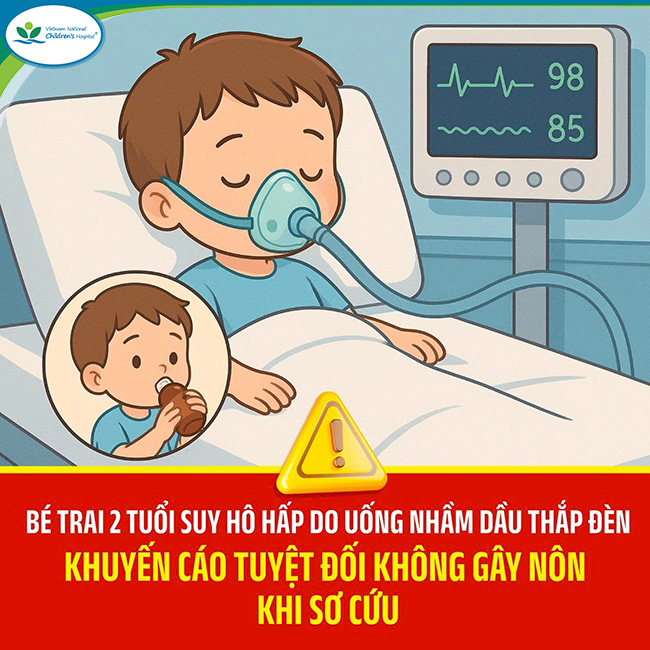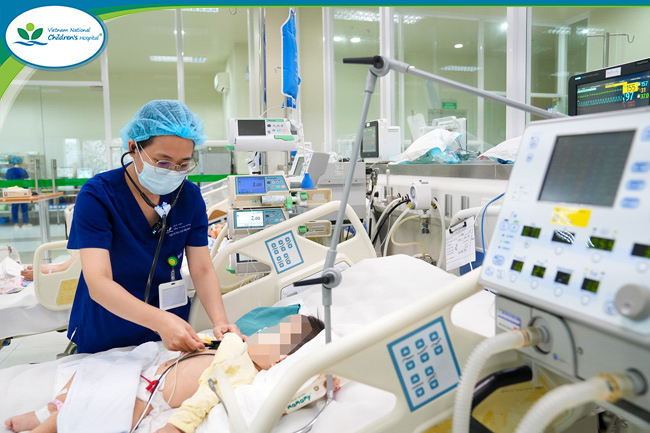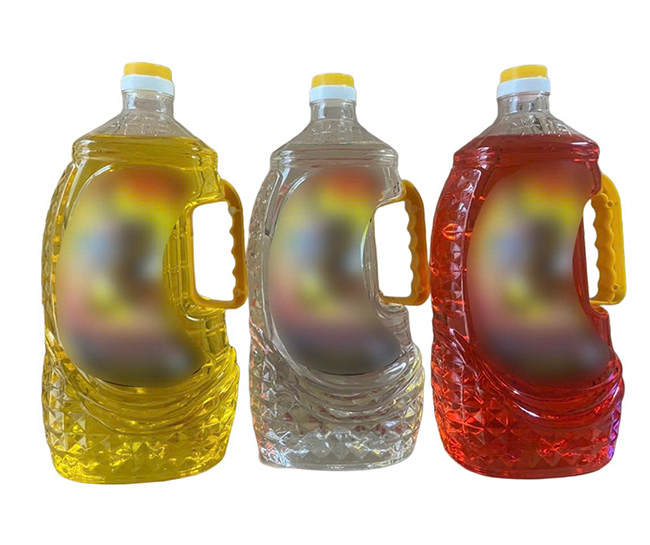Accidental ingestion of lamp oil is one of the dangerous household accidents in young children, potentially causing serious respiratory, neurological, and cardiovascular damage. From the beginning of 2025 until now, the Pediatric Intensive Care Unit at the Vietnam National Children’s Hospital has treated four cases of lamp oil poisoning, three of which involved severe respiratory failure accompanied by neurological injury. Doctors particularly emphasize that a common mistake during initial first aid is attempting to induce vomiting in the child. This action can worsen the child’s condition and lead to serious consequences.

2-year-old boy suffers severe respiratory failure after accidentally ingesting altar lamp oil
On November 7, H.Đ, a 2-year-old boy from Hanoi, was admitted to the hospital after accidentally ingesting altar lamp oil that his family had placed on the floor. Upon discovering the incident, the family attempted to induce vomiting in the child before taking him to a nearby hospital for initial treatment.
Dr Tran Thi My Hanh From Pediatric Intensive Care Unit at the Vietnam National Children’s Hospital stated that inducing vomiting is often the first reflex of many parents when they see their child ingest lamp oil. However, this action can cause the child to aspirate the oil into the lungs, worsening the condition. At the local healthcare facility, although H.Đ received oxygen support, his condition did not improve. He was then transferred to the Vietnam National Children’s Hospital in severe respiratory distress, showing rapid breathing, cyanosis, and critical respiratory failure. Doctors promptly performed intubation and mechanical ventilation.
Fortunately, after four days of intensive care, H.Đ stabilized, the endotracheal tube was removed, and he was able to breathe on his own with stable hemodynamics and vital signs. Nevertheless, his respiratory function still requires close monitoring in the coming period.

How dangerous is accidental lamp oil ingestion? Why should vomiting not be induced during first aid?
Accidental ingestion of lamp oil by children usually results from adult carelessness. Today, lamp oil is produced in many bright colors, which can easily be mistaken for beverages. Additionally, the common practice of using familiar containers such as water bottles, cups, or bowls to store oil, especially when placed near common living areas or on altars, increases the risk of young children ingesting it and being exposed to danger.
Lamp oil is a volatile hydrocarbon with high toxicity. When ingested, its fumes can easily enter the lungs, causing respiratory failure along with cardiovascular and neurological damage. Children may experience mild to severe respiratory failure, seizures, or even coma.
If a child ingests lamp oil, parents must never attempt to induce vomiting before the airway is protected. Trying to make the child vomit increases the risk of aspiration. Inhaled oil can penetrate deep into the lungs, causing aspiration pneumonia and severe damage to the respiratory system.

Doctors recommend the following measures for managing accidental lamp oil ingestion and preventing chemical poisoning in children:
If a child is found to have ingested lamp oil:
- Families should remain calm, never induce vomiting, and do not give the child water or any other liquids. Quickly take the child to the nearest healthcare facility for proper and timely treatment.
- Closely supervise young children during play or daily activities.
- Keep chemicals out of children’s reach: Always store medicines, chemicals, and lamp oil in a locked cabinet, placed high and out of children’s reach.
- Do not store lamp oil or other chemicals in familiar containers such as water bottles, soda bottles, or brightly colored bottles that can easily be mistaken for drinks.
- Teach children not to eat or drink anything unknown without adult permission.
This child’s poisoning case once again raises an alarm about the risk of lamp oil and other household chemical poisoning, such as rodenticides and cleaning agents. Despite repeated warnings, such household accidents continue to occur, often resulting in serious consequences for children and families. Therefore, raising awareness and proactively creating a safe living environment is the best measure to minimize these preventable accidents.


